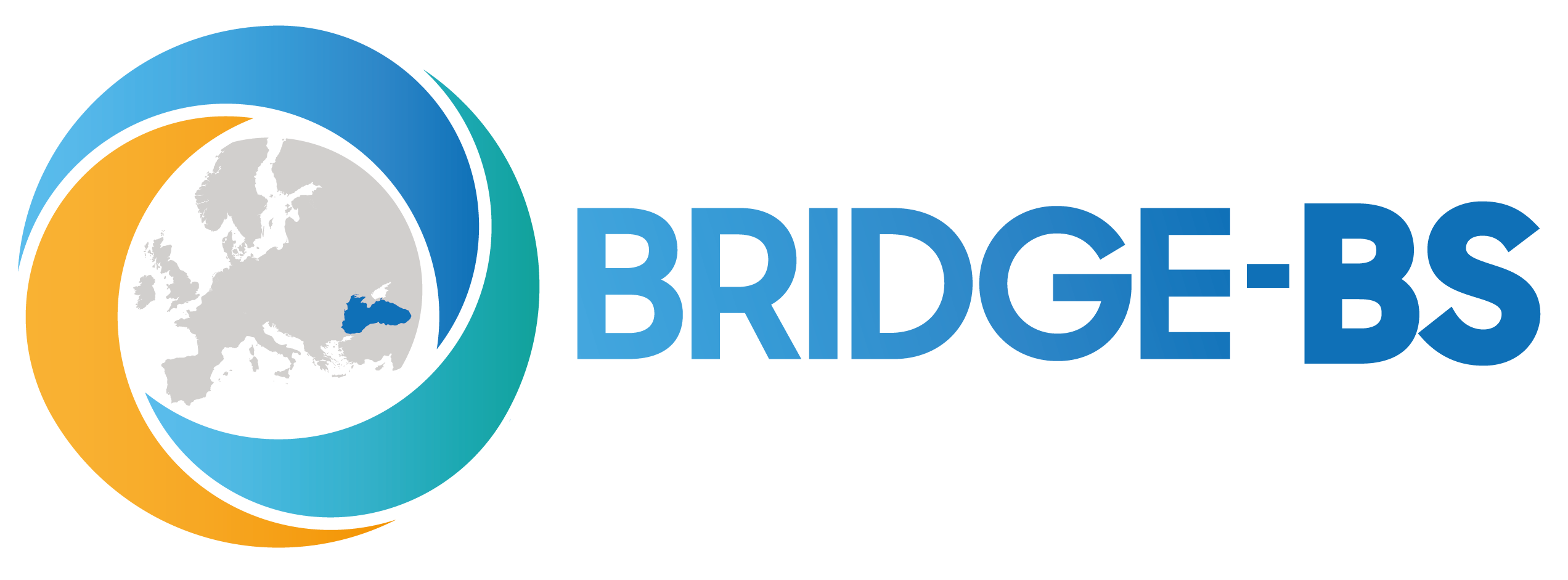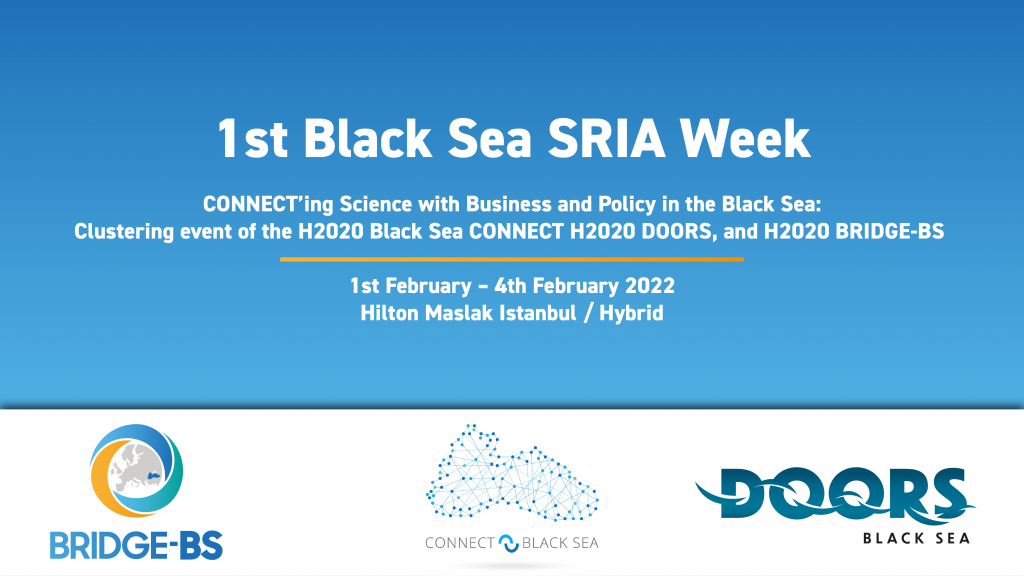CONNECT’ing Science with Business and Policy in the Black Sea: Clustering event of the SRIA-Implementing projects H2020 Black Sea CONNECT H2020 DOORS, and H2020 BRIDGE-BS
The Black Sea is a vital resource with vast potential to boost the societal value of the blue economy for its surrounding countries. While the Black Sea is a unique sea basin that is rich in biodiversity, heritage, and natural resources, the basin is increasingly under pressure due mainly to the increasing impacts from human-induced factors, such as eutrophication and hypoxia, overfishing, and the introduction of alien species, in addition to the effects of climate change. In recognition of the importance of these and the significant influence of multistressors on the Black Sea ecosystems and its services, the Burgas Vision Paper (2018), the Common Maritime Agenda (CMA, 2019), and its Science Pillar the Black Sea Strategic Research and Innovation Agenda (SRIA, 2019) emphasized the urgent need to identify synergistic multiple stressors (multistressors) interactions impacting ecosystem resilience and prioritized a set of actions for a healthy, resilient and productive Black Sea by 2030’.
With that aim, an EU H2020 funded Black Sea CONNECT CSA has been funded in 2019 with the goal of consolidating the Black Sea SRIA Implementation Plan. Two main implementing actions further supporting the Black Sea SRIA were granted by EU’s H2020 framework programme in 2021: BRIDGE-BS (Advancing Black Sea Research and Innovation to Co-Develop Blue Growth within Resilient Ecosystems) and DOORS (Developing Optimal and Open Research Support for the Black Sea).
On 2-4 February 2022, the H2020 funded Black Sea projects are organizing a clustering event of the SRIA-Implementing projects to CONNECT Science with Business and Policy in the Black Sea with a mix of open events as well as internal meetings of the three consortia. The event will be officially kicked off on 2nd February (1st Day) with the Black Sea CONNECT Innovation Workshop which will showcase the best practices of marine clusters initiatives to the eventual formation of a marine and maritime cluster of the Black Sea. The workshop will start with a policy plenary in which the high-level representatives from European Commission’s relevant services will make interventions.
Building on the momentum of Day 1, BRIDGE-BS and DOORS consortia will hold a joint session on Blue Growth in the Black Sea on 3 February 2022 (2nd day). As a part of this session, both projects will explain how the research outputs will support both SRIA as well as CMA implementation. Based on the recent events and experience based on the CMA implementation, input from the National Hub’s of the CMA Implementation will be received. In the afternoon of the 2nd day, internal cross-project meetings will take place between BRIDGE-BS and DOORS consortia.
4th February (3rd day and last day) will be dedicated to scientific collaboration across the BlackSea basin and science-policy dialogue. Moderated discussion on what the policy-makers expect from scientists will take place in the session ‘‘Science for Policy Session’’. This will be followed by the joint scientific session to scope scientific research on the Black Sea by dedicated speakers from both consortia with a specific focus on what BRIDGE-BS and DOORS will deliver in relation to the state of the art of Black Sea research. In the second part of the day, Black Sea Young Ambassadors will present their vision and planned actions for 2030. They will also take part in the activities throughout the week and report their perspective. Following the Black Sea Young Ambassador session, the week will be closed with a presentation by the rapporteurs of the event and concluding remarks from the coordinators of BRIDGE-BS and DOORS.
Overall, the Black Sea SRIA week, a first of many similar cluster events to come, aims to demonstrate the status of the SRIA Implementation process via strong cooperation among the H2020 funded projects. The event will bring together and mobilize academia, industry, society, and the general public together for a healthier, resilient, and sustainable Black Sea.







